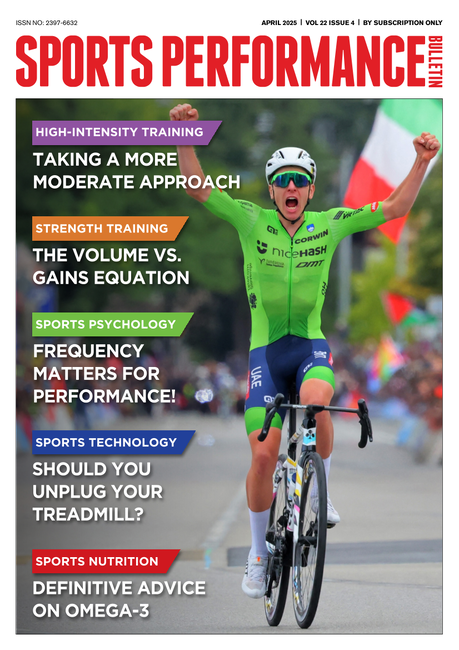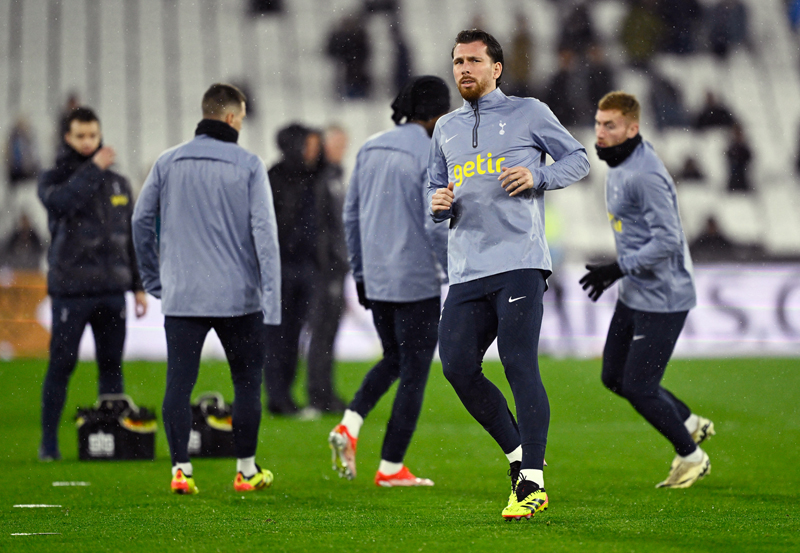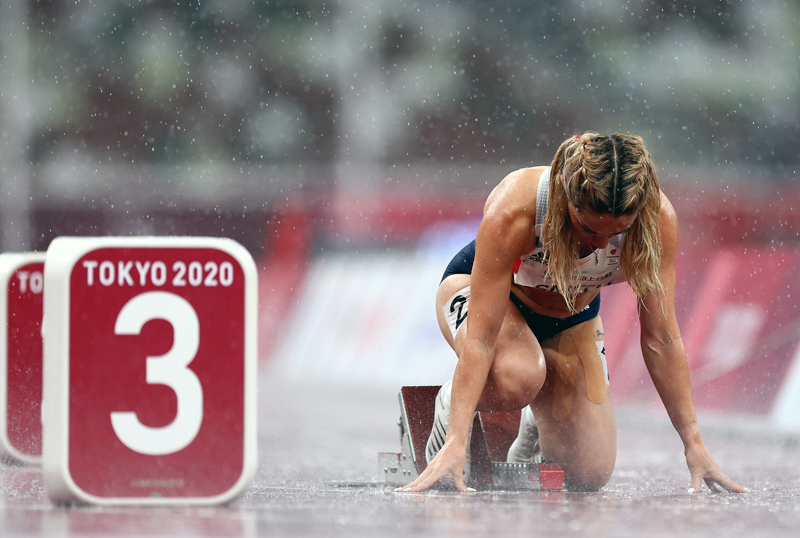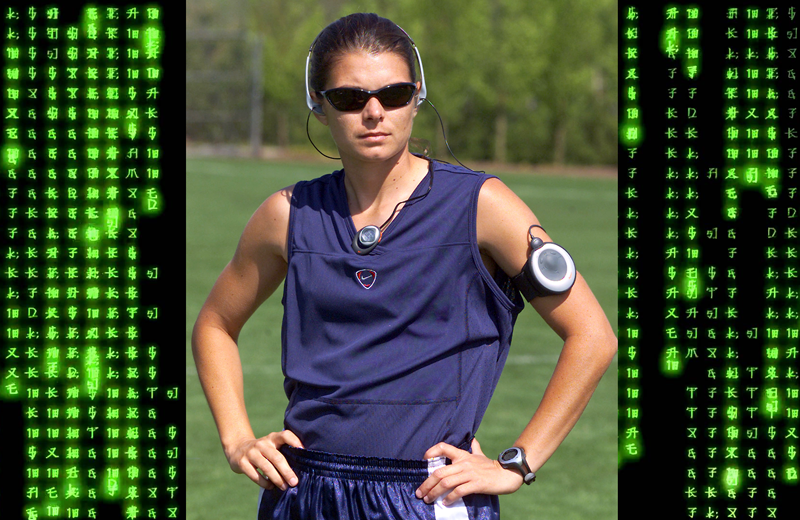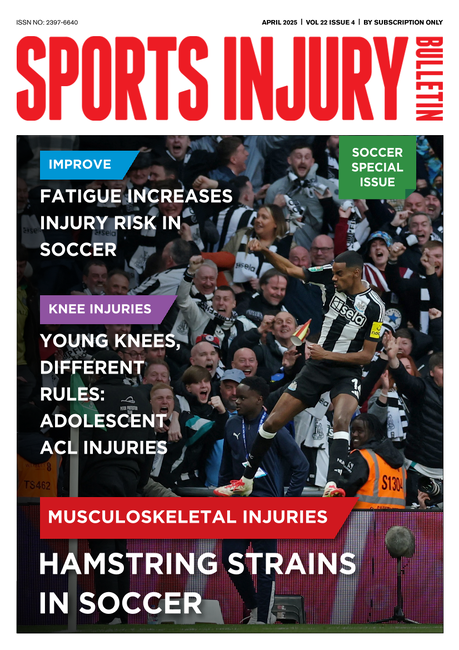Having worked with and questioned athletes on their thoughts over a number of years, I can tell you that the number who do plan their thoughts is surprisingly small. I say surprising because, as a sport psychologist, I am aware of what scientific research has been showing for a number of years: that thoughts do matter. In fact the nature and quality of your thoughts can make the difference between winning or losing, enjoying or hating your training, and may impact on your decision to stay with an exercise programme.
Much of this scientific evidence comes from studies of marathon runners. Neuroscientists have shown that we have thousands of thoughts running through our minds each and every day. Athletes spend a large percentage of their time thinking sport-related thoughts, but most of these are unplanned and random. The first step towards becoming more organised and purposeful in your thinking is to become more aware of them. So when you next go for a training run, cycle or swim, try to become more aware of what you are thinking about.
Table 1 – techniques for dissociation
|
So what should you be thing about? Two very different mental strategies have emerged, with both commonly used by elite and other runners. Association involves focusing on bodily sensations and monitoring any changes – usually internal – that occur. Breathing rate and muscular sensations provide physiological cues that allow you to pace yourself with a view to avoiding or minimising pain.
By contrast dissocation is about directing attention away from bodily sensations by a form of distraction designed to reduce the athlete’s awareness of fatigue or effort. This can be achieved by many means, including music. However, more ‘active’ strategies like counting tasks or the alphabet game (see table 1) might be more effective.
I am often asked which of these strategies is best. There is no simple answer, but a recent review of scientific research in this area came to the following conclusions (1):
- In general, association appears to be linked to faster running times;
- Dissociation can reduce the sense of effort and awareness of physical sensations such as pain and fatigue – usually up to moderate-to-high intensity;
- Athletes of all levels appear to favour association in competition and dissociation in training;
- Elite athletes tend to use both strategies during training and races, and are able to switch between the two, as required.
However, because dissociation works by distracting the mind, it might work against an athlete setting an ideal pace for optimum performance. The reason why association appears so important in competition is that, by monitoring his bodily responses, an athlete can ride that thin line between pushing for maximum performance and overdoing it.
Most successful elite marathon runners have been shown to combine associative and dissociative strategies when planning their thoughts. There are times, especially in races, when you need to be very aware of your own physical state and of events in the external environment. However, there are also times when you can plan to ‘switch off’ and give yourself a break from the mental demands of competition or training. The best thing is to construct a plan with your coach, exercise leader or even a more experienced fellow athlete. Try to decide between you what is the best approach for you, and plan what you will be thinking about during the race or training sessions.
For a 30-minute training run you might decide on cyclic phases of thinking- e.g. 10 minutes of body monitoring, 10 minutes of alphabet game, then more body monitoring to the end. It’s all perfectly logical once you get started: you wouldn’t leave your physical preparations to chance, so why allow your thoughts to crop up in random fashion.
Table 2 – techniques for associative body monitoring Follow this three-stage plan:
|
When running, cycling or swimming for long periods of time, the mind can wander freely, if you let it. When this happens, your natural internal dialogue – or self-talk – becomes important. If your concentration does stray or your body monitoring detects fatigue, it is vital that your self-talk remains positive. The best thing is to avoid over-emotional self-talk and focus on self-instructing, motivational content. To this end, you can plan and even rehearse what you are going to say to yourself beforehand, just like your might rehearse an important telephone call or lecture. The key is to stay positive even when the situation is less than ideal. This is not an easy feat to pull off and will take some time to master.
The first step in this process is to become more aware of your thoughts during training and competition. If you want to gain more control over your thoughts, try to formulate a simple plan and try it out over a number of weeks during training. If you notice any undesirable patterns in your thinking, such as negative self-talk or loss of focus, you can try to combat these by planning more positive alternative thoughts. You can, for example, frame positive statements that you repeat to yourself regularly. Ideally, write these statements down and place them in prominent positions where you can’t avoid seeing them. Work on recalling these statements when you become aware of negative thoughts or feelings. This might seem a little strange at first, but you are actually programming your brain to notice more ‘positives’ and, over time, with will become a habit.
Athletes often recall that their very best performances are accompanied by few thoughts, a feeling of complete control, effortless movements and a sense of being ‘on automatic pilot’. Sport psychologists often refer to this as a ‘state of flow’. The aspects of positive thinking and focus discussed in this article have been shown to increase the likelihood of achieving flow, although environmental factors can also be important.
Don’t leave your psychological preparation to chances. Remember that you control your thoughts, not the other way round. The way you think is strongly linked to the way you perform. So if you want to perform better, gain greater control and enjoy your sport more, start planning today because in this sphere the thoughts really do count.
Lee Crust
References
- The Sport Psychologist, vol 12, pp253-270, 1998




